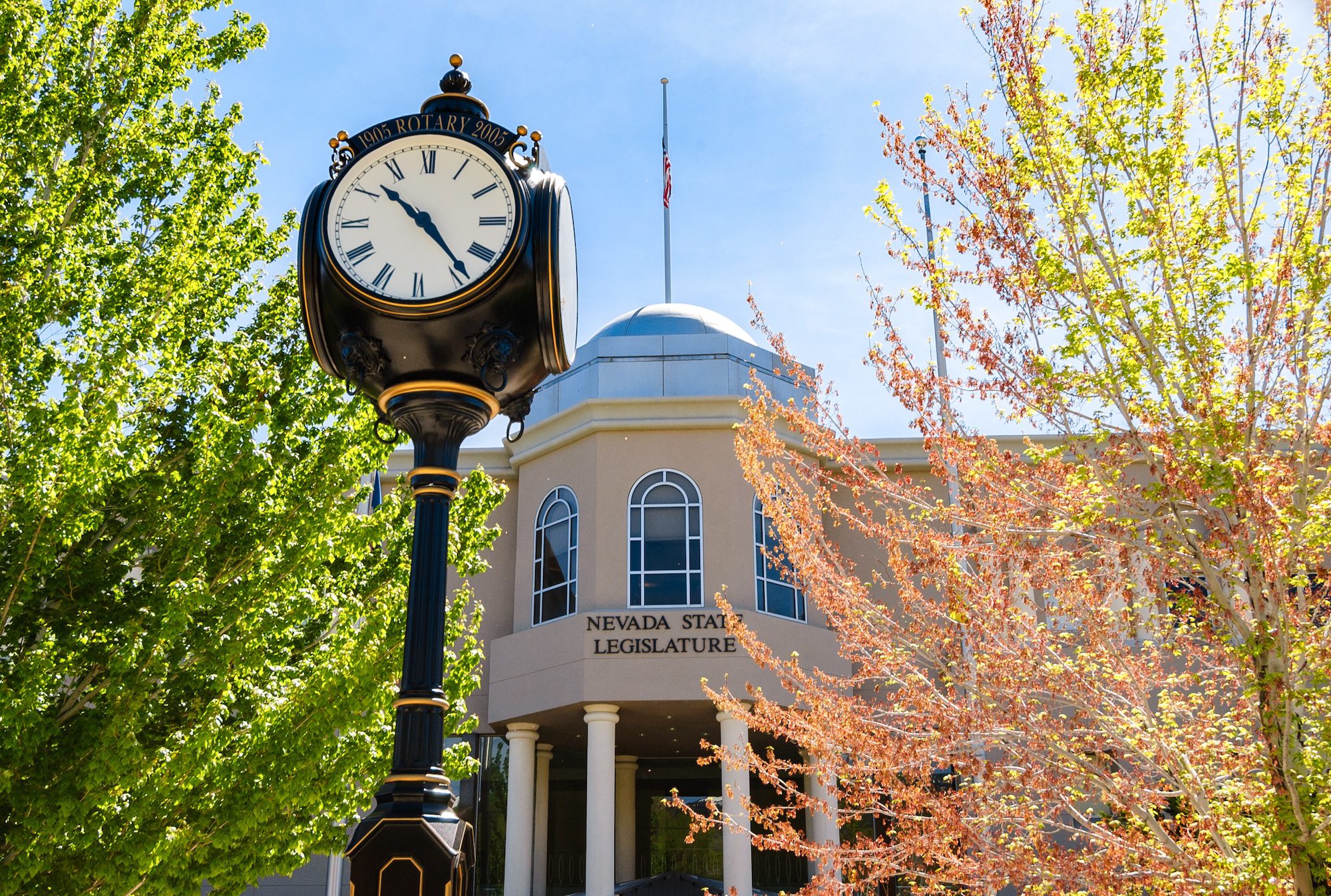Governor Joe Lombardo has emerged as a pivotal figure in Nevada’s political landscape, wielding noteworthy influence through his historic use of veto power. During the 82nd Legislative Session, Lombardo vetoed a record-breaking 75 bills, each carrying profound implications for Nevadan’s daily lives and the state’s economic future.
This article aims to provide a clear, nonpartisan explanation of one of those bills that Lombardo vetoed: Assembly Bill 172 (AB172). This quick read will shed light on the bill’s intent, the rationale behind its veto, and the potential impacts of not supporting the governor in upholding the veto. Understanding these vetoes is crucial for participating effectively in Nevada politics, whether deeply involved or just beginning to engage.
Want to take your engagement to the next level? Find out how below!
But first, why did the governor veto AB172, and what privacies should I be concerned about? All of this and more to follow.
Privacy vs Transparency: Unpacking AB172
Introduced by Assemblywoman Natha Anderson and Senator Skip Daly, AB172 would have required each school district to semiannually disclose employee’s personal information-names, addresses, emails, phone numbers and work locations-to recognized unions in the area. The bill intends to enhance bargaining transparency, but it’s clear that if AB172 becomes law, it’ll be a privacy violation and opportunity for unions to harass employees into joining.
If a school district employee notifies the district, in writing, that they do not wish to share their personal information, the district would have to respect that request. However, the district must disclose the employee’s personal information to the Government Employee-Management Relations Board. Though the bill requires said information to stay confidential and not a public record, with it already out in the ether, there are ways to get around that.
AB172 doesn’t include an explicit opt-out provision. The mumble jumble jargon in the bill may make those who wish to keep their information private sigh with relief, but the information will be in the hands of a government entity, nonetheless. Say your child’s teacher has moved to Nevada to start a new life after dealing with domestic violence. I doubt they’d be comfortable with sharing any information let alone their location. Sharing the information is unnecessary and, in this case, could be dangerous for your child’s teacher.
Behind the Veto: Safeguarding Employee Privacy in Collective Bargaining
Governor Lombardo cites several critical reasons for vetoing AB172, but privacy remains a top concern. “Though the bill attempted to address privacy concerns by allowing employees to opt-out of disclosing their private information to various employee organizations, this measure is insufficient in its actual addressal of those privacy issues,” Lombardo writes in his veto. “Employees should have the right to affirmatively confirm their choice to opt-in to such an organization rather than the other way around. Since this bill is inappropriately expansive in its approach to addressing certain collective bargaining issues, I cannot support it.”
The governor knows that this bill’s intent doesn’t fully consider privacy but rather is a means to an end for unions and collective bargaining concerns. AB 172, in its original form or even with its modifications, would have presented an opportunity for unions to exert coercive pressure and undermine the rights of public employees to choose whether to associate with a union.

Initially, local governments would have been required to hand over the personal information of all employees to their respective unions without any avenue for an employee to object under AB172. In the wake of the Janus Supreme Court decision, which affirmed public employees’ right to decide on union membership without mandatory fees, AB172’s provisions could have conflicted with these newfound freedoms.
As a right-to-work state, Nevada was unaffected by the aftermath of the Janus decision, but unions nationally have been grappling with the loss of compelled membership fees and have sought alternative means to bolster their ranks. Hence AB172. A better safe than sorry attempt by Nevada union.
AB172: A Dangerous Precedence
How far will the unions go to get what they want? AB172 could be the first of many steps to bolster membership, control elections, and open the door to harassment. Even if the bill only targets school districts and enacts an opt-out process, AB172, if passed, will pave the way for the harassment of government employees who have, for whatever reason, exercised their right to free association.
The apparent purpose of the bill is to make it easier for unions to contact nonunion workers during recruitment efforts. Eager to expand their membership, unions would then be able to call and show up at your teacher’s place of work, your child’s school, until they join the ranks of the unionized.

AB172 supporters argue that the bill will promote fair bargaining practices and ensure equitable treatment of workers. But isn’t violating a person’s privacy unfair? Isn’t forcing employees to share their information, regardless of whether they want to or not, the opposite of equitable treatment of workers?
But it will only be the beginning. The bill’s potential to compromise employee autonomy in union-related matters poses significant concerns amidst evolving legal precedents like the Janus decision.
Gov. Lombardo’s decision to veto AB172 reflects his commitment to preserving individual liberties and maintaining a fair and transparent labor environment in the Silver State. By rejecting the bill, Lombardo aims to protect workers’ rights to privacy and freedom of association and ensure that Nevada’s labor policies align with constitutional protections and respect for personal autonomy.
Let Your Voice Be Heard
Nevada residents, we are responsible for staying informed, engaging with our elected officials, and supporting policies that preserve individual freedoms. Let your legislators know you support Governor Lombardo’s decision to veto AB172. You can advocate for policies prioritizing privacy and personal liberties in our great state.
